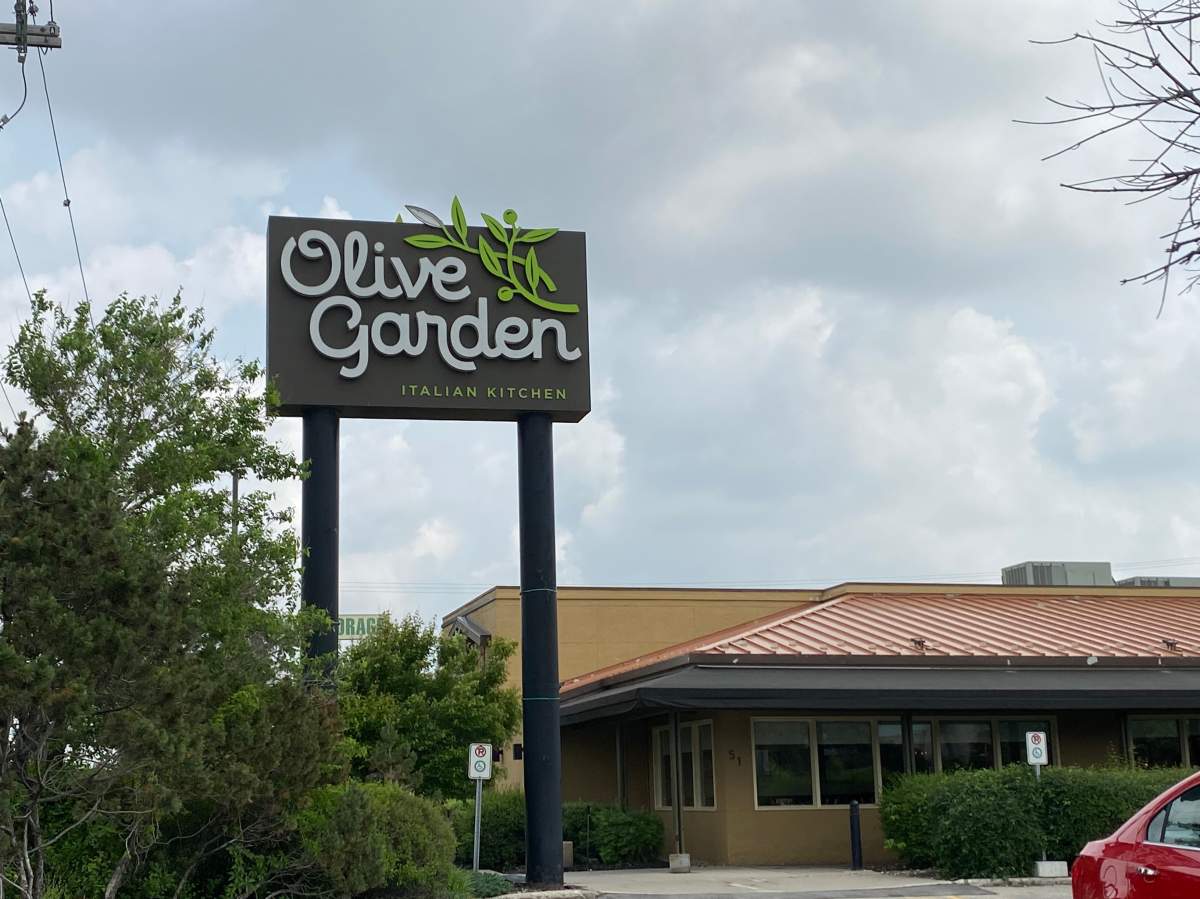The director of a Winnipeg outreach organization says she has sympathy for the young restaurant staffer who was the victim of a random stabbing last Thursday, but also for the accused.

Marion Willis of St. Boniface Street Links told 680 CJOB’s The Start that her organization had a four-year history with 27-year-old Robert Ingram, who is facing a number of charges in connection with the unprovoked attack at the Olive Garden on Reenders Drive.
“This is devastating. My thoughts and my prayers go to (the) victim and her family, but also Robert Ingram’s family,” she said.
“He first came to us in February of 2019. He came to us as a young person who had a meth addiction and also some other vague underlying mental health issues.
“He was a very pleasant young man, comes from a very, very good family — a family that has been very involved with him, and a family that has really advocated from the beginning for him to receive mental health supports that at the end of the day just seemed not to exist for him.”

Audio from his 2021 sentencing hearing revealed Ingram had developed a meth addiction and battled mental health challenges.
According to Willis, Street Links worked with Ingram over long periods of time when he wasn’t using drugs, and there were clear signs of serious mental illness.
Because of his history of meth use, however, she said his mental health was often overlooked by the system, despite efforts from family and advocates.
“We’ve had a meth crisis that emerged in 2016. The health system has had a very difficult time distinguishing between the poor mental health and psychoses that are attached to meth addiction and actual mental illness … and that is the story of Robert Ingram,” Willis said.

Get breaking National news
“He would come and go from our program and we saw, over time, the progression of really severe and complex mental illness.
“Unfortunately, every time — and there were many, many times — our organization, his family, we all worked so hard to get Robert the level of mental health supports he really needed, but we just couldn’t.”
Ingram is in custody after being arrested for the Olive Garden incident, which put the 18-year-old victim in hospital. He has been charged with aggravated assault, possessing a weapon and failing to comply with a probation order.
The allegations against Ingram have not been proven.
Winnipeg police say there’s no indication that anything in particular pushed him to commit the assault, and that he didn’t know the victim beforehand.
Ingram is well-known to police, with several prior convictions. He pleaded guilty in 2021 to 15 counts of arson after being charged in connection with a string of fires, including one on the grounds of the St. Boniface Hospital.
His sentence included a mandatory 10-year weapons ban. Court records show Ingram was also convicted of mischief, theft and failing to comply with probation orders for incidents prior to the fires.
“I remember at one point he served time for some of the … arsons he committed,” Willis said. “He was released right back to the street without letting us know, without letting his family know, and with absolutely no plan.
“We are a program in community, parents are just parents. You would think that when you see the parents and organization that actually cared for this person 24/7, that they would have the very best understanding of what was really going on, but we were never heard.”

While the 18-year-old victim is expected to make a full recovery physically, she’ll likely have emotional scars as a result of the incident — and so may some of the bystanders.
U.S.-based sociology professor Karen Weiss told The Start Monday that some restaurant customers — as well as the victim’s co-workers — have likely been affected by witnessing the unprovoked attack.
“You go out to a restaurant, you go to a mall, you go to a school… you don’t expect that there’s going to be this violence,” Weiss said. “It’s putting a lot of fear in advance of normal routines.
“I think, very sadly, people are just starting to rationalize all of this so that they can live normal lives.”
Weiss said bystanders may also experience guilt if they believed they could have done something to stop a crime.
“It can leave a lot of lingering guilt. People will have to deal with that, psychologically. And then, of course, there’s survivor’s guilt if you’re in a … situation where somebody nearby to you was the one who actually ended up getting hurt, and you were lucky enough to not.
“A lot of times people don’t talk about it, but witnesses really are indirectly victimized in a lot of ways.”










Comments
Comments closed.
Due to the sensitive and/or legal subject matter of some of the content on globalnews.ca, we reserve the ability to disable comments from time to time.
Please see our Commenting Policy for more.